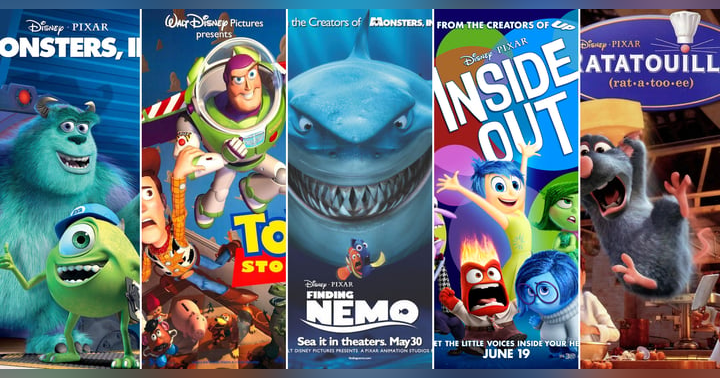Alien vs. Aliens: A Cinematic Showdown

In the pantheon of science fiction and horror films, few movies have left as indelible a mark as Ridley Scott's "Alien" (1979) and James Cameron's "Aliens" (1986). These films set a new standard for their respective genres and became cultural touchstones that continue influencing filmmakers and captivating audiences. Both are often listed among the greatest films ever made, but which one edges out the other? While it's akin to making a "Sophie's Choice," if pressed, one might lean towards "Aliens" as the superior film—albeit by a razor-thin margin. Let's delve into why each film is a masterpiece in its own right and why "Aliens" might have a slight edge. Let's explore the ultimate showdown - Aliens vs Aliens.
Alien: A Masterclass in Suspense and Atmosphere
"Alien," directed by Ridley Scott, redefined the horror genre by blending it seamlessly with science fiction. The film's premise is simple yet profoundly effective: a commercial spaceship, the Nostromo, intercepts a distress signal from an uncharted planet, and what follows is a terrifying sequence of events that culminates in the crew fighting for survival against a perfect organism, the Xenomorph.
Atmospheric Tension: One of Scott’s greatest achievements with "Alien" is its atmosphere. The film is a masterclass in building tension and dread. The Nostromo, with its claustrophobic, industrial corridors, feels like a character itself, contributing to the film’s oppressive sense of foreboding. Scott's use of shadow and light crafts a lurking sense of danger around every corner, making the eventual appearance of the alien all the more terrifying.
Innovative Horror: The design of the Xenomorph by H.R. Giger is nothing short of iconic—biomechanical, otherworldly, and utterly terrifying. "Alien" also broke new ground with its famous chest-burster scene, which remains one of the most shocking moments in cinema. The horror of "Alien" comes not just from the grotesque and the gore but from the existential dread it evokes—here is a creature that defies understanding, making it all the more horrifying.
Character Depth: Sigourney Weaver’s Ellen Ripley is perhaps the film’s most enduring legacy. In a landscape dominated by male heroes, Ripley emerged as a resourceful, resilient survivor whose gender is incidental to her heroism. This was a profound shift in genre cinema, positioning Ripley as a feminist icon and setting a template for strong female characters in action and horror genres.
Aliens: Expanding the Universe with Action and Emotion
James Cameron took the helm for the sequel, shifting gears from horror to action-packed science fiction without losing the thematic depth of the original. "Aliens" expands the story of Ellen Ripley and the universe of the Xenomorphs, adding new layers of lore and thrilling intensity.
Action-Packed Narrative: Cameron’s approach was to expand the scale in terms of action and storytelling. "Aliens" introduces a squad of colonial marines armed to the teeth, expecting to confront unknown adversaries, only to find themselves overwhelmed by the Xenomorphs. The action sequences in "Aliens" are meticulously crafted, combining military tactics with the sheer terror of survival horror.
Emotional Resonance: At the heart of "Aliens" is the relationship between Ripley and Newt, a young girl who is the sole survivor of a colony decimated by the aliens. This relationship gives the film its emotional core and deepens Ripley’s character, transforming her from a survivor to a protector. This emotional depth sets "Aliens" apart from many other action films and enriches its narrative.
Technical Mastery: "Aliens" is a technical marvel, showcasing effects and creature design improvements. The introduction of the Queen Xenomorph adds a new level of terror and awe to the alien life forms. Cameron’s ability to handle large-scale action set pieces while maintaining clear, coherent visuals is a testament to his directorial prowess.
Making the Choice
Deciding which film is "better" can be subjective and depends largely on individual taste—whether one prefers the suffocating horror and suspense of "Alien" or the adrenaline-pumping action and emotional depth of "Aliens." Each film excels in its chosen path, with "Alien" offering a groundbreaking blend of science fiction and horror and "Aliens" expanding on this foundation with its thrilling action and complex character development.
Why "Aliens" Might Edge Out: If forced to choose, one might tilt slightly towards "Aliens" for its broader appeal. While it embraces the horror elements introduced by its predecessor, it enhances them with rich emotional undercurrents and relentless action. "Aliens" offers a more visceral experience and a satisfying narrative arc that sees its characters transformed through their trials.
Both "Alien" and "Aliens" are masterpieces of their respective genres, crafted by directors at the height of their powers. They reward repeated viewings and continue to inspire discussion and analysis. While "Aliens" takes the narrowest of leads in this cinematic showdown, both films remain essential viewing for anyone who appreciates the art of filmmaking at its most profound and exhilarating.














